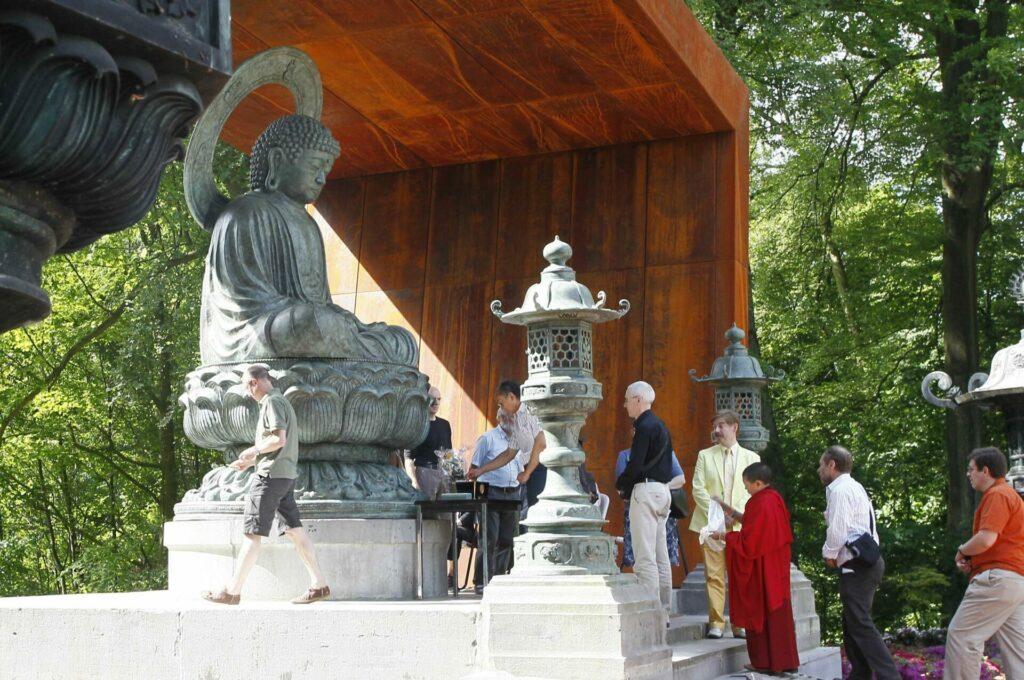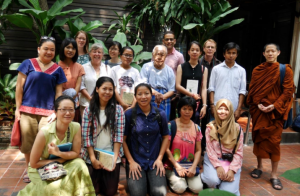
In a decision that will clear the way for federal funding and dedicated school classes, Belgium is poised to become the third nation in the European Union to recognize Buddhism as an official religion, after the federal government approved a draft law on 17 March.
The news comes 17 years after the Buddhist Union of Belgium first petitioned the government for official recognition in March 2006. Belgium is now set to join Austria and Italy as the only other EU countries to make Buddhism a state-recognized spiritual tradition.
Buddhism was officially recognized under Austrian law in 1983. In 2007, the Italian Buddhist Union (Unione Buddhista Italiana) founded in 1985, signed an agreement with the Italian government, which became law in 2012
Buddhism’s official recognition in Belgium as a non-denominational worldview comes after the Council of Ministers approved a bill that was drafted by Federal Justice Minister Vincent Van Quickenborne. The approved draft law must now be submitted to the Council of State and discussed in the consultation committee before being validated by parliament.
“They deserve this recognition that they have been waiting for for a long time,” Van Quickenborne said in a statement on 17 March. (VRT News)
The Belgian-French Buddhist, explorer, and author Alexandra David-Néel introduced the Maha Bodhi Society to the Congress of Free Thinkers in Brussels as early as 1910. (Brosse) Between the two world wars, a group of people interested in Buddhism reportedly held meetings in Brussels. The first Buddhist centers in Belgium were established in the 1960s. The Buddhist Union of Belgium, founded in 1997, now represents most active Buddhist organizations in the country. Currently, the union has 35 affiliated organizations.
According to data for 2019, 0.3 per cent of Belgium’s population of 11.6 million people identify as Buddhists. This compares with Christian traditions (60 per cent), Islam (five per cent), Judaism (0.3 per cent), other religions (four per cent), and no stated religious affiliation (31 per cent).

The Buddhist Union of Belgium has been designated as the representative of the Buddhist community in Belgium and the official interlocutor of the Belgian government.
“Buddhism now has some 150,000 adherents in our country,” Van Quickenborne noted. “Over the past decades, this community has proven that it can structure itself in an orderly manner, both administratively and representatively, and make a positive contribution to our society. They deserve this recognition.” (The Brussels Times)
Full federal recognition will allow Buddhism to be taught in state schools. It also entitles the Buddhist community to federal funding, as the funding for worship services and non-denominational philosophies is enshrined in Belgium’s constitution. This will allow the community to professionalize its organizational structure, pay wages and pensions for Buddhist consultants, delegates, and chaplains, and fund a federal secretariat.
The move will make Buddhism Belgium’s eighth officially recognized philosophy of life, after Roman Catholicism (in 1830), Judaism (1830), Anglicanism (1835), Protestant-Evangelicalism (1876), Islam (1974), Orthodoxy (1985), and liberal-humanism (2002).
References
Brosse, Jacques. 1991. Alexandra David-Neel. Paris: Albin Michel.
See more
Buddhism becomes eighth recognised religion in Belgium (The Brussels Times)
Buddhism becomes eighth recognised religion in Belgium (Belga News Agency)
After Seventeen Years of Waiting, Buddhism Will (Finally) Be Recognized in Belgium (Archyde)
Belgium officially recognises Buddhism as a non-denominational religion (VRT News)
Belgium to become second EU country to recognize Buddhism (Reuters)
Related news reports from BDG
North London Buddhist Center Appeals for Support after COVID-19 Losses
Telo Tulku Rinpoche, Supreme Lama in Russian Republic of Kalmykia, Announces Resignation
Peace Prevails at Scotland’s Kagyu Samyé Ling Buddhist Monastery
New UK Law to Formally Recognize Animals as Sentient Beings
Tilorien Monastery in Belgium Opens to the Public
Related features from BDG
The Non-dual Nature of Love in the Tantric Practice of Vajra-Romance: Interview with Mé-tsal Wangmo and Ja’gyür Dorje
The Way of the Bodhisattva: Telo Tulku Rinpoche’s 30 Years of Noble Service to the Kalmyk People












